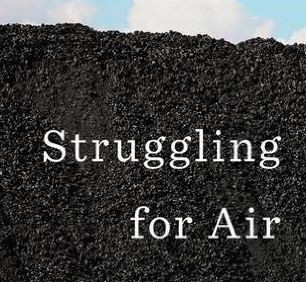February 1, 2016
January 2016 at Policy Integrity: A Coal Reform Victory; Clean Power Plan Updates; Struggling for Air; New Clean Air Act Report; Comments to Forest Service and EPA
-
A Successful Push for Coal Reform
We helped achieve a major policy victory in January, when the Interior Department announced a moratorium on new coal leases along with a review of the federal coal program and a slate of potential reforms. Policy Integrity has been encouraging similar reforms for more than a year, authoring several reports and op-eds on the topic and sharing our research with officials at the Interior Department and the White House. Jayni Hein, our policy director, called the announcement a “major shift that helps modernize the federal coal program.” Hein told the Washington Post, “This planning process will disclose the environmental and social impacts of coal leasing, which are extensive.” National Geographic also highlighted our research to show how taxpayers have subsidized coal mining on public land. As the review of the coal program proceeds, we will continue to push for specific policy improvements.
-
Clean Power Plan Updates
The Clean Power Plan recently overcame another legal hurdle as the D.C. Circuit declined to stay the rule before it hears the lawsuits against the plan early this summer. Some states and industry groups have now petitioned the Supreme Court to halt implementation of the rule, but Richard Revesz recently told ClimateWire that “It would be extraordinarily unlikely that the Supreme Court would have any interest in getting involved at this point.” In other CPP news, we recently submitted comments on the EPA’s proposed federal plan requirements and model trading rules. We urged the agency to use a mass-based trading system in its default federal plan and encourage broad trading markets to minimize costs. Additionally, our comments explained how the EPA’s federal plan design is well grounded in Section 111(d) of the Clean Air Act. We are currently at work on a brief for the D.C. Circuit case on the Clean Power Plan.
-
Struggling for Air
Richard Revesz and Jack Lienke’s new book, Struggling for Air, Power Plants and the ‘War on Coal’, has been officially released by Oxford University Press! The book has drawn accolades from a wide range of policymakers and environmental law experts, and Revesz and Lienke are in the midst of a slate of speaking engagements around the country. Upcoming events include discussions in New York on February 17, the Bay Area on February 9 and 10, Boulder, Colorado on February 18, and Washington, D.C. on April 5. Revesz and Lienke recently discussed the book in an interview on E&E TV. Salon also recently published an excerpt from the book.
-
New Report on Clean Air Act Climate Policy
The most efficient legal tool for addressing U.S. climate pollution can likely be found in an unused provision of the Clean Air Act. Section 115 of the Act, titled “International Air Pollution,” authorizes the EPA to develop and implement an economy-wide, market-based program to reduce domestic greenhouse gas emissions, without further Congressional action. Our new report offers an in-depth analysis of Section 115, which would provide the most flexible approach for achieving the targets from the Paris climate agreement. The report, which we authored collaboratively with the Sabin Center for Climate Change Law at Columbia Law School and the Emmett Institute on Climate Change and the Environment at UCLA School of Law, has also received considerable media attention.
-

Comments to Forest Service and EPA
In January, Policy Integrity submitted comments on two important environmental matters. The Forest Service recently used the Social Cost of Carbon to measure the climate effects of a proposed exception to the Colorado Roadless Rule, but its application of the metric was flawed in several respects. We addressed these critical problems in joint comments with EDF, NRDC, and the Union of Concerned Scientists. Additionally, the EPA recently released a supplemental finding to address the Supreme Court’s ruling that costs were not considered at the appropriate stage when the Mercury and Air Toxics Standards were crafted. Our comments supported the agency’s analytical methods and encouraged the EPA to avoid suggesting that the use of formal cost-benefit analysis is inconsistent with the consideration of unquantified benefits or distributional effects.


